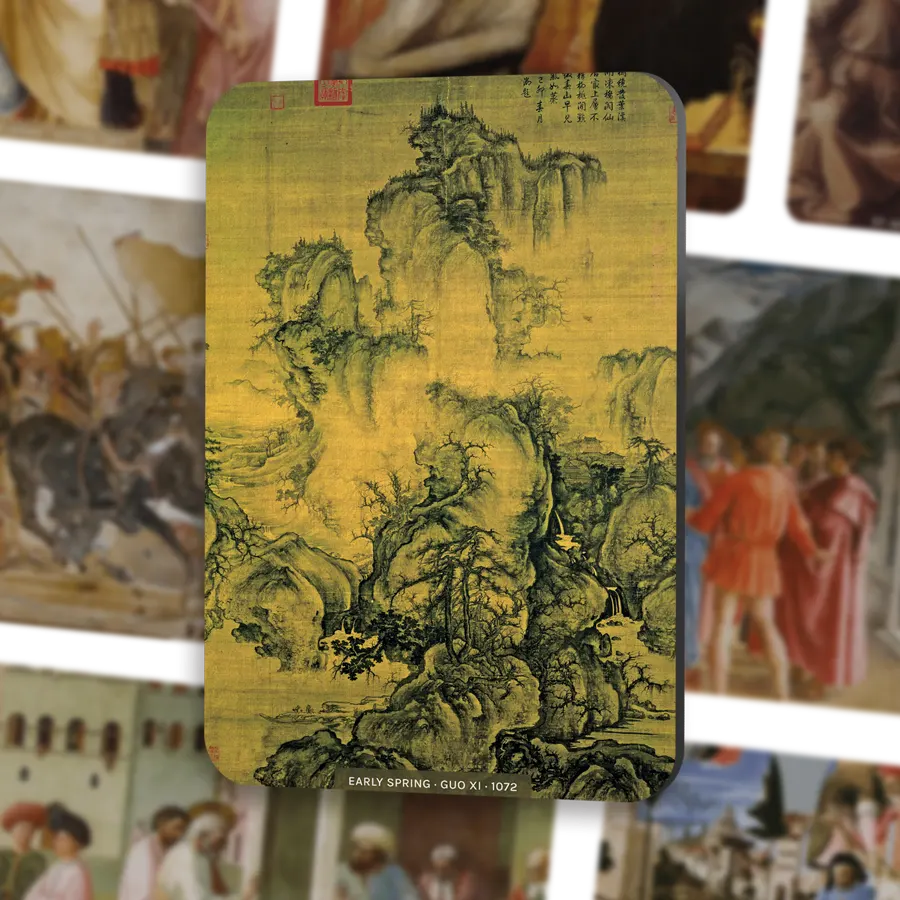Welcome to a fascinating journey through time, exploring the rise and fall of ancient civilizations. From the ancient Egyptians and Greeks to the Mesopotamians and Mayans, these ancient cultures left an indelible mark on the world. Let's delve into these remarkable civilizations' rich history, achievements, and lasting impact.
What are ancient civilizations?
Definition of ancient civilization
An ancient civilization refers to a complex society that emerged and thrived in the distant past, showcasing advancements in various areas, including agriculture, architecture, governance, art, and more. These civilizations had a lasting impact on human history and laid the foundation for modern civilizations.
Significance of ancient civilizations
Ancient civilizations played a pivotal role in shaping the world as we know it today. They pioneered innovative technologies, developed systems of writing and communication, and established social structures that influenced societies for thousands of years. These civilizations served as the cradle of civilization, setting the groundwork for the development of modern-day societies.
Characteristics of ancient civilizations
Ancient civilizations shared several key characteristics. They typically had highly organized governments and social structures, with a clear division of labor and social classes. They also made significant advancements in architecture, creating monumental structures like pyramids and tombs. Additionally, they often had well-developed trade networks and made contributions to art, literature, science, and technology.
When did ancient civilizations flourish?
Ancient civilizations before 3100 B.C.
Ancient civilizations emerged and flourished long before recorded history. Around 10,000 years ago, the world witnessed the rise of early human civilizations. These ancient cultures, such as the ancient Egyptians and Mesopotamians, laid the foundations for future civilizations to build upon.
Ancient civilizations between 3100 B.C. and 1900 B.C.
Between 3100 B.C. and 1900 B.C., several ancient civilizations reached their zenith. This period witnessed the rise of mighty kingdoms and empires, such as Ancient Egypt, Mesopotamia, and the Indus Valley Civilization. These civilizations showcased remarkable achievements in various fields that continue to astound us today.
Ancient civilizations after 1900 B.C.
After 1900 B.C., ancient civilizations continued to flourish and expand their influence. From the Greeks to the Mayans, a multitude of civilizations achieved great heights during this time. The ancient Greeks, known for their contributions to art, philosophy, and democracy, left an enduring legacy. Similarly, the Mayans developed sophisticated mathematical and astronomical systems, and their impressive cities still stand today in Central America.
What were the major ancient civilizations?
Ancient Egypt
Ancient Egypt stands as one of history's most magnificent ancient civilizations. Situated along the Nile River, the ancient Egyptians built an empire that lasted for thousands of years. They left behind awe-inspiring monuments like the pyramids, and their advanced understanding of science and engineering allowed them to achieve remarkable architectural feats.
Mesopotamia
Mesopotamia, located in modern-day Iraq, was home to several ancient civilizations such as the Sumerians and Babylonians. They developed the world's first known writing system, the cuneiform, and made significant advancements in various fields like astronomy, mathematics, and law. Mesopotamia is often referred to as the cradle of civilization.
Ancient Greece
Ancient Greece, with its cultural, intellectual, and political achievements, shaped Western civilization. The ancient Greeks were pioneers in the fields of democratic governance, philosophy, and scientific inquiry. They produced iconic works of art, literature, and architecture that continue to inspire us to this day. The ancient Greeks made significant contributions to various fields such as philosophy, democracy, literature, and art. They left behind a rich legacy of great thinkers like Socrates, Plato, and Aristotle, and their architectural wonders like the Parthenon continue to inspire awe.
Ancient Rome
Ancient Rome, known for its vast empire and innovative governance, had a lasting impact on Western civilization. The Romans were skilled engineers and built impressive structures like aqueducts, roads, and amphitheaters. They also made advancements in law, literature, and the arts. The Roman Empire influenced language, architecture, and governance systems throughout Europe and beyond.
Ancient China
Ancient China is known for its rich history and contributions to various fields. The Chinese invented paper, the compass, gunpowder, and printing, all of which had a profound impact on the world. The ancient Chinese also made significant advancements in agriculture, medicine, and philosophy. The Great Wall of China is one of their most famous architectural achievements.
Indus Valley Civilization
The Indus Valley Civilization flourished in present-day Pakistan and northwest India from 3300 BC to 1300 BC. It was known for its sophisticated urban planning, advanced drainage systems, and distinctive pottery. However, much about this civilization remains a mystery as their written language has not yet been deciphered.
Mayans
The Mayans were a Mesoamerican civilization that flourished in present-day Mexico, Guatemala, Belize, Honduras, and El Salvador from around 2000 BC to 1500 AD. They were known for their architecture, mathematics, astronomy, and writing advancements. Mayan cities had impressive temples, palaces, and pyramids. The Mayans developed a complex calendar system and made significant contributions to mathematics, including the concept of zero. Their hieroglyphic writing system, known as Maya script, has been partially deciphered. The Mayans also had a rich mythology and religious belief system, and they performed various rituals and ceremonies. The civilization declined in the 9th and 10th centuries, and many of their cities were abandoned, but Mayan descendants still exist today and preserve their cultural heritage.
These are just a few examples of major ancient civilizations, but there were many more that played significant roles in shaping human history, such as the Incas, and the Persians.
What were the achievements of ancient civilizations?
Architectural wonders of ancient civilizations
Ancient civilizations are renowned for their architectural marvels. The pyramids of Egypt, the Great Wall of China, and the temples of ancient Greece are just a few examples of their incredible achievements in architecture. These structures not only showcased the ingenuity of ancient cultures but also served as testaments to their power and religious beliefs.
Advancements in science and technology
Ancient civilizations made impressive strides in scientific and technological advancements. The Egyptians, for instance, developed sophisticated methods of mummification and built elaborate irrigation systems to harness the power of the Nile. The ancient Greeks laid the foundation for Western scientific thought, making significant discoveries in various fields like mathematics, astronomy, and physics.
Contributions to art and literature
From epic poems and philosophical treatises to intricate sculptures and captivating paintings, ancient civilizations made lasting contributions to the world of art and literature. The Greeks, in particular, produced timeless works like Homer's "Iliad" and "Odyssey" and the iconic sculptures of the Parthenon, which continue to inspire artists and scholars.
How did ancient civilizations impact the world?
Trade and cultural exchange
Ancient civilizations thrived on trade and cultural exchange, which stimulated economic growth and fostered the exchange of ideas and knowledge. The ancient Egyptians, for example, engaged in flourishing trade networks that spanned vast distances and facilitated the sharing of goods and ideas with other civilizations. This cross-cultural interchange contributed to the development of modern civilizations.
Influence on modern legal systems
Ancient civilizations played a crucial role in the development of modern legal systems. The Code of Hammurabi, a set of laws created by the Babylonians, served as the basis for legal systems in several ancient cultures. Similarly, ancient Greek legal concepts, such as the rule of law and trial by jury, laid the groundwork for modern legal principles that persist to this day.
Legacy in Language and writing systems
Ancient civilizations left an enduring legacy in language and writing systems. The ancient Egyptians developed hieroglyphics, a complex system of pictorial writing, while the ancient Chinese perfected the use of characters. These writing systems paved the way for the development of written communication in subsequent civilizations and continue to be studied and admired today.
Learn more about history, science, art, and architecture through educational magnetic cards. Discover MUSÉEWALL collections.
Q: What does the term "ancient civilization" refer to?
A: The term "ancient civilization" refers to a society or culture that existed thousands of years ago, before the common era (b.c) or after the common era (a.d).
Q: Which civilizations are considered ancient civilizations?
A: Many civilizations are considered ancient civilizations, including but not limited to Ancient Egypt, the Indus Valley Civilization, Ancient Greece, Mesopotamia, the Maya Civilization, and the Chinese Civilization.
Q: Which civilization was known for its advanced writing system and mathematics?
A: The Ancient Maya Civilization was known for its advanced writing system, known as hieroglyphics, and its advancements in mathematics.
Q: What contributed to the decline of many ancient civilizations?
A: Several factors contributed to the decline of many ancient civilizations, including warfare, environmental changes, the spread of disease, and internal conflicts.




